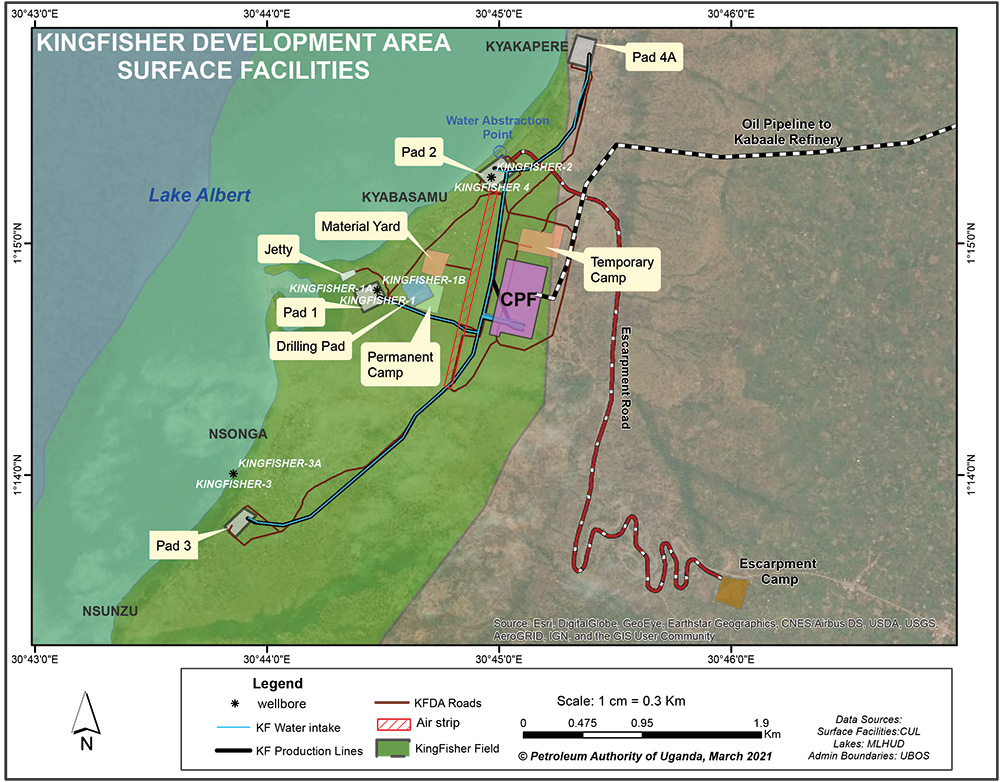
KINGFISHER OIL PROJECT SPURS HUMAN RIGHTS VIOLATIONS AND CLIMATE ACTION CALL IN UGANDA
A recent report from Climate Rights International (CRI), a U.S.-based nonprofit, exposes significant human rights abuses associated with the Kingfisher oil project in Uganda, operated by the Chinese National Offshore Oil Company (CNOOC). Released on September 2, the report details forced evictions, inadequate compensation, violence, and loss of livelihoods for local communities reliant on Lake Albert.
Brad Adams, CRI’s executive director, stated, “Our findings demonstrate that this project is not benefiting the local population or Uganda as a whole. It is inflicting significant environmental harm, exacerbating climate issues, and violating the human rights of people living in and around the Kingfisher area.” This alarming assessment underscores the urgent need to reevaluate energy projects in Africa that compromise human rights and environmental integrity.
The report draws on interviews with 98 residents near the Kingfisher oil site. Local fishers, facing violence and intimidation from military personnel, report that their boats are regularly seized and destroyed. Since drilling began in January 2023, oil spills have severely impacted fish populations, jeopardizing the livelihoods of those dependent on fishing.
The land acquisition process has also been marred by coercion, with residents forcibly evicted and entire villages emptied without proper compensation. Reports of intimidation and sexual violence against local women have emerged, raising critical ethical questions about fossil fuel extraction in vulnerable communities.
As part of the East African Crude Oil Pipeline initiative, the Kingfisher project aims to transport oil from Uganda to international markets through ecologically sensitive areas. Villagers opposing the project have faced harassment, highlighting the erosion of civil liberties in favor of corporate interests.
Neither CNOOC nor TotalEnergies responded to requests for comment from Mongabay at the time of publication. Adams noted that CRI had reached out to the oil companies regarding the allegations but received no response, emphasizing a concerning lack of accountability.
In light of these findings, CRI calls on financial institutions to reconsider new funding for the Kingfisher project. “Supporting this initiative would not only be unethical but could also pose serious reputational risks in their home countries,” Adams warned. He suggested that the Chinese government must reassess its involvement with CNOOC to avoid increasing unpopularity across the continent.
This situation highlights the urgent need for climate action in Uganda and Africa as a whole. The continent faces numerous challenges due to climate change, including extreme weather and food insecurity. Advocates argue that development in Africa should focus on sustainable and equitable energy solutions that prioritize human rights and environmental health.
As the Kingfisher oil project illustrates the intersection of human rights and environmental degradation, it is evident that a collective commitment to responsible energy practices and climate action is essential for a sustainable future in Uganda and beyond. Moving forward, it is critical to ensure that development benefits both local communities and the planet.




